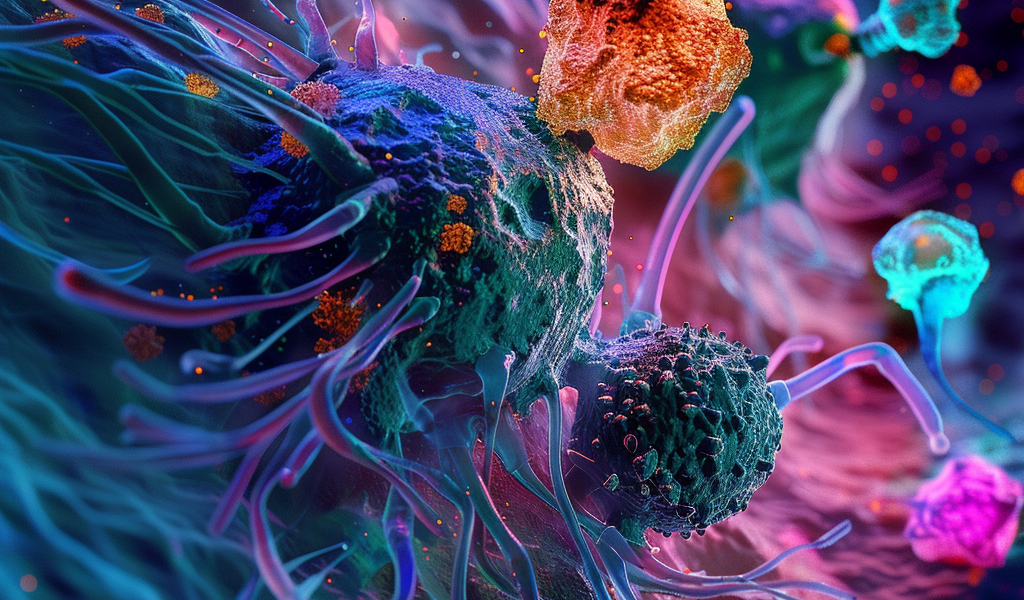In a groundbreaking study published in the journal Cell, researchers have unveiled the pivotal role of specialized ribosomes, known as P-stalk ribosomes (PSRs), in the immune evasion mechanisms of cancer. This research highlights a significant advancement in our understanding of how tumors manipulate cellular processes to escape detection by the immune system, thereby paving the way for improved cancer immunotherapies.
The study, led by a team of scientists, utilized extensive translational experiments conducted on both in vivo murine models and in vitro human melanoma cell lines. The primary focus was to investigate the cellular rewiring processes induced by cytokines, particularly following alterations in ribosomal function.
One of the most striking findings of the research was the dramatic impact of PSR knockdown on the recognition of tumor antigens by CD8+ T cells. This underscores the crucial role that PSRs play in facilitating immune detection of tumors. The study reveals that PSRs are essential mediators of cellular signal convergence, influencing the regulation of both pro-inflammatory and anti-inflammatory cytokines.
Moreover, the researchers identified that these processes occur through previously unverified translation mechanisms, particularly phosphorylation. PSRs are responsible for driving the translation of messenger RNAs (mRNAs) that are critical for cytokine responses, including those involved in antigen presentation and immune surveillance. Remarkably, these mechanistic interactions were found to be applicable across various cell types and cancer types, indicating a generalized mechanism of tumor immune evasion.
The implications of these findings are profound, as they provide valuable insights that could help in the prevention or treatment of multiple types of cancer in the future. The ability of tumors to evade the immune system is a major factor contributing to their status as a leading cause of human mortality. This evasion is often exploited by innovative cancer therapies, particularly immune checkpoint blockade (ICB).
ICB therapies consist of a class of drugs designed to enhance cancer treatment outcomes by blocking checkpoint proteins that shield tumors from T cell recognition. By inhibiting these proteins, ICB therapies aim to restore the immune system’s ability to identify and eliminate cancer cells. However, a significant challenge remains, as many patients exhibit resistance to ICB interventions.
This resistance has prompted researchers to reassess the underlying mechanisms that dictate the effectiveness of ICB therapies. Recent studies have suggested that the infiltration of T cells into the tumor microenvironment (TME) is crucial for the success of ICB mediation. Upon entering the TME, T cells produce various cytokines, which are regulatory proteins that can influence both cancer and immune cell behavior.
While certain cytokines serve as beneficial biomarkers of ICB responses, others, particularly inhibitory cytokines like TGF-β, can alter the behavior of cancer and immune cells in ways that facilitate tumor survival. The intricate balance of cytokine signaling within the TME is critical for determining the outcome of immunotherapy.
The identification of PSRs as key regulators of cytokine-mediated processes opens new avenues for research into cancer treatment strategies. By targeting the mechanisms that allow tumors to evade immune detection, researchers hope to develop more effective therapies that can enhance the efficacy of existing treatments.
As the scientific community continues to unravel the complexities of tumor-immune interactions, the findings from this study underscore the importance of understanding ribosomal function in the context of cancer biology. The potential for PSRs to serve as therapeutic targets offers a promising direction for future research, with the goal of improving patient outcomes in the fight against cancer.
In summary, the discovery of P-stalk ribosomes as master regulators of immune evasion in cancer represents a significant leap forward in our understanding of tumor biology. This research not only sheds light on the mechanisms of immune evasion but also highlights the need for innovative approaches to enhance the effectiveness of cancer immunotherapies.





